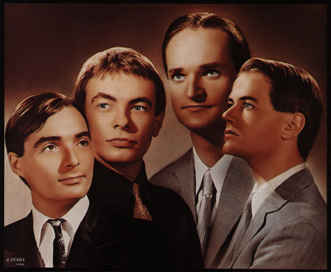Monday, March 31, 2008
Meme
Today I heard someone talking about a new online catchphrase thing. He couldn't quite describe it. Can you describe it? Here are some examples that have been around for awhile. They are called memes. Here, thanks to wiki:
Examples of memes
* Children's culture: games, activities and chants (such as taunts) typical for different age-groups.
* Epic poems: once important memes for preserving oral history; writing has largely superseded their oral transmission.
* Conspiracy theories
* Factoids
* Recipes
* Fashions
* Medical and safety advice: "Don't swim for an hour after eating" or "Steer in the direction of a skid".
* Religions: complex memes, including folk religious beliefs, such as The Prayer of Jabez.
* Popular concepts: these include Freedom, Justice, Ownership, Open Source, Egoism, or Altruism
* Group-based biases: everything from anti-semitism and racism to cargo cults.
* Longstanding political memes such as "mob rule", national identity, Yes Minister and "republic, not a democracy".
* Programming paradigms: from structured programming and object-oriented programming to extreme programming.
* Internet phenomena: Internet slang. "Internet memes" propagate quickly among users using email, websites, blogs, discussion boards and other Internet communications as a medium.
* Moore's Law: this meme has a particularly interesting form of self-replication. The conviction that "semiconductor complexity doubles every 18 months" became considerably more than a predictive observation; it became a performance-target for an entire industry once that industry extensively started to believe in the "law". Manufacturers now strive to make the next generation of semiconductor technology re-create the growth in performance of the previous generation, and so maintain belief in Moore's Law. Additionally, the evolution of this meme provides details of interest. The original law described growth in terms of the number of transistors on a chip, but people - more and more -- have (wrongly) understood it as describing an increase in terms of performance. This could exemplify how a meme can mutate slowly under the pressure of its environment (partial technical understanding and simplification for use in the mainstream media).
* Metameme: The concept of memes itself comprises a meme.
* Anecdotes: Short jokes or other stories.
* Phrases; A turn of phrase, or expression, like "Whasssssup!" or "Where's the beef?" or the Internet meme "all your base are belong to us!"
* Viral marketing: A type of marketing based on memes and using "word of mouth" to advertise (see the recent example of Snakes on a Plane).
* Chain-letters
Does the concept of memes lend credit to constructionist arguments of international relations? Are memes actively or passively defined? By whom are they defined and propagated?
Examples of memes
* Children's culture: games, activities and chants (such as taunts) typical for different age-groups.
* Epic poems: once important memes for preserving oral history; writing has largely superseded their oral transmission.
* Conspiracy theories
* Factoids
* Recipes
* Fashions
* Medical and safety advice: "Don't swim for an hour after eating" or "Steer in the direction of a skid".
* Religions: complex memes, including folk religious beliefs, such as The Prayer of Jabez.
* Popular concepts: these include Freedom, Justice, Ownership, Open Source, Egoism, or Altruism
* Group-based biases: everything from anti-semitism and racism to cargo cults.
* Longstanding political memes such as "mob rule", national identity, Yes Minister and "republic, not a democracy".
* Programming paradigms: from structured programming and object-oriented programming to extreme programming.
* Internet phenomena: Internet slang. "Internet memes" propagate quickly among users using email, websites, blogs, discussion boards and other Internet communications as a medium.
* Moore's Law: this meme has a particularly interesting form of self-replication. The conviction that "semiconductor complexity doubles every 18 months" became considerably more than a predictive observation; it became a performance-target for an entire industry once that industry extensively started to believe in the "law". Manufacturers now strive to make the next generation of semiconductor technology re-create the growth in performance of the previous generation, and so maintain belief in Moore's Law. Additionally, the evolution of this meme provides details of interest. The original law described growth in terms of the number of transistors on a chip, but people - more and more -- have (wrongly) understood it as describing an increase in terms of performance. This could exemplify how a meme can mutate slowly under the pressure of its environment (partial technical understanding and simplification for use in the mainstream media).
* Metameme: The concept of memes itself comprises a meme.
* Anecdotes: Short jokes or other stories.
* Phrases; A turn of phrase, or expression, like "Whasssssup!" or "Where's the beef?" or the Internet meme "all your base are belong to us!"
* Viral marketing: A type of marketing based on memes and using "word of mouth" to advertise (see the recent example of Snakes on a Plane).
* Chain-letters
Does the concept of memes lend credit to constructionist arguments of international relations? Are memes actively or passively defined? By whom are they defined and propagated?
Subscribe to:
Post Comments (Atom)

No comments:
Post a Comment